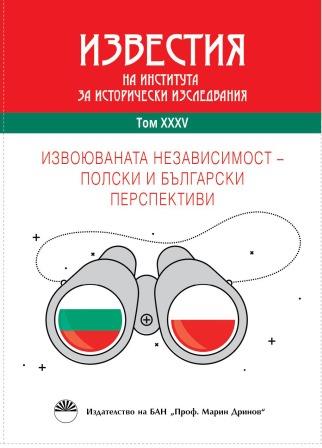Борбата на Полша за самостоятелност в Източния блок
Poland’s Struggle for Independence in the Eastern Bloc
Author(s): Iskra BaevaSubject(s): History, Political history, Recent History (1900 till today), Special Historiographies:, Post-War period (1950 - 1989), History of Communism
Published by: Институт за исторически изследвания - Българска академия на науките
Keywords: Polish-Soviet War; World War II; anti-Nazi resistance; Eastern Bloc; independence; anti-communist resistance; Solidarity Independent Trade Union
Summary/Abstract: The fate of Poland in the twentieth century depended, above all, on its complex geopolitical position, since it is situated between two major European powers – Russia and Germany. Despite the considerable strong anti-Nazi resistance in Poland, after the end of World War II, Poland, along with most Eastern European countries, fell into the Soviet sphere of influence. The long anti-Russian historical tradition made Poland‘s stay in the pro-Soviet Eastern bloc full of many problems and acts of resistance. The Poles opposed the Communist regime on numerous occasions: in 1956, 1968, 1970, 1976, and 1980, before gaining their independence in June 1989. In the parliamentary elections, the independent Solidarity trade union won a decisive victory and started Poland’s transition to democracy, which was followed by other countries in the Eastern Bloc.
Journal: Известия на Института за исторически изследвания
- Issue Year: 35/2020
- Issue No: 1
- Page Range: 151-167
- Page Count: 17
- Language: Bulgarian
- Content File-PDF

